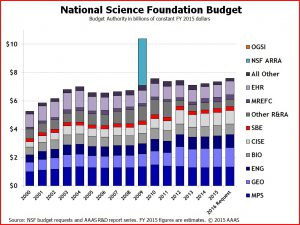After the long campaign for the White House, Donald Trump became the new president of US. With just two months before his inauguration on 20 January, he and his staff are busy vetting candidates for top government jobs and clarifying the agenda for his first few months in office.
We are waiting to see how Trump realizes his statements during the campaign. The most concerning thing for us is the attitude Trump hold for science, which will affect quantities of universities and labs, and consequence effect our business.
Trump has never explicitly said that he wants to reduce funding for science in the US. However, his lack of policy and planning for the scientific community — paired with his apparently ridiculous budgeting — could be a worry in itself.
Another concern that people in the research community have is Trump’s apparent distain for the National Institutes of Health (NIH) — the federal agency that shells out billions for biomedical research. There’s a famously quoted interview with Michael Savage on a conservative radio show last year where Trump said: “I hear so much about the NIH, and it’s terrible.”
“The verdict remains out,” says Tobin Smith, vice-president for policy at the Association of American Universities in Washington DC. “There are many people who have been strong supporters of science you might not have been expecting.” Smith says that a prime example is Newt Gingrich, the former Republican congressman for Georgia, who was rumored to be up for a top job in Trump’s administration.

But it’s hard to draw any conclusions about Trump’s views on science, given his limited comments on such issues during his presidential campaign, other policy specialist caution. “He speaks positively of innovation, but ‘innovation’ is a big word,” says Kevin Wilson, director of public policy and media relations at the American Society for Cell Biology in Bethesda, Maryland. “You can drive a truck through innovation. We don’t know what that means.”
Although there are not direct policies published recently, the attitude Trump appears in campaign really worries the researchers on science.
“This is terrifying for science, research, education, and the future of our planet,” tweeted María Escudero Escribano, a post-doctor studying electrochemistry and sustainable energy conversation at Stanford University in California. “I guess it’s time for me to go back to Europe.”
“I do breast cancer research for my PhD,” tweeted Sarah Hengel, a graduate student at the University of Iowa in Iowa City. “Scared not only for my future but for the future of research and next year’s @NIH budget.”
Without federal money, labs would crumble, because there simply aren’t enough private donors to make up that amount of funding.
Most consequential question of all is what a Trump presidency might mean for science funding. The federal government currently spends $150 billion or so per year on research and development (R&D), funding one-third of all science in this country — everything from cancer research to the fundamentals of cell biology. Yet Trump hasn’t given much indication of what he wants to do here.
The key science issues we concerning about are biomedical science and immigration. Of course, the attitude of Trump for climate change issue was more apparent. Fortunately, we could discuss the future trend more peaceful on biology science than the climate scientists.
Some biomedical researchers are worried that Trump will cancel an Obama order that authorized experiments with human embryonic stem cells in the United States.
Trump’s immigration stance stokes fears for science, Some researchers worry that such policies would threaten US research dominance. About 5% of US university students come from other countries, including more than 380,000 people studying science, engineering, technology or mathematics.
“The rhetoric that Mr Trump ran under has frightened lots of immigrants,” says Benjamin Corb, director of public affairs for the American Society for Biochemistry and Molecular Biology in Rockville, Maryland. “I certainly hope that we don’t end up losing some brilliant minds as a result of some near-sighted policies.”